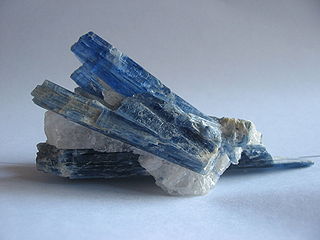Cyanite is a metric storage daemon, exposing both a carbon listener and a simple web service. Its aim is to become a simple, scalable and drop-in replacement for graphite's backend.
Graphite is a powerful graphing solution. It sports a somewhat aged but very powerful web interface. Carbon is graphite's storage daemon, written in python which writes out whisper or ceres file.
Cyanite is a clojure application and thus can be built as a standalone JAR file. Building cyanite needs a working leiningen installation, as well as a java JRE and JDK. Once the prerequisites are met run the following:
lein uberjar
The resulting artifact will be stored in target/cyanite-0.1.0-standalone.jar
You will need a running cassandra cluster, the simplest way to get up and running
is to follow the instructions as available here (using the 20x branch):
http://wiki.apache.org/cassandra/DebianPackaging.
You will need a cassandra keyspace (rough equivalent of an SQL database) with the following schema (also available in doc/schema.cql):
CREATE KEYSPACE metric WITH replication = {
'class': 'SimpleStrategy',
'replication_factor': '1'
};
USE metric;
CREATE TABLE metric (
period int,
rollup int,
tenant text,
path text,
time bigint,
data list<double>,
PRIMARY KEY ((tenant, period, rollup, path), time)
) WITH
bloom_filter_fp_chance=0.010000 AND
caching='KEYS_ONLY' AND
comment='' AND
dclocal_read_repair_chance=0.000000 AND
gc_grace_seconds=864000 AND
index_interval=128 AND
read_repair_chance=0.100000 AND
replicate_on_write='true' AND
populate_io_cache_on_flush='false' AND
default_time_to_live=0 AND
speculative_retry='NONE' AND
memtable_flush_period_in_ms=0 AND
compaction={'class': 'SizeTieredCompactionStrategy'} AND
compression={'sstable_compression': 'LZ4Compressor'};
You can create this keyspace by running the following command:
cqlsh < doc/schema.cql
Cyanite is configured from a YAML file. The default path for this
path is /etc/cyanite.yaml though a different path can be provided
on the command line.
carbon:
host: "127.0.0.1"
port: 2003
rollups:
- period: 60480
rollup: 10
- period: 105120
rollup: 600
stats:
tenant: "cyanite_cluster"
interval: 60
http:
host: "127.0.0.1"
port: 8080
logging:
level: info
console: true
files:
- "/tmp/cyanite.log"
store:
cluster: 'localhost'
keyspace: 'metric'You can also specify your rollups as carbon-style retention description.
carbon:
rollups:
- "10s:1d"
- "10m:1y"By default, cyanite stores all the graphite paths in memory. For small amounts of data or in non-HA setups, this works pretty well. However, for metrics datasets with a large number of metrics or where HA is required, elasticsearch can be used to store metrics instead, which results in faster response time and no in memory cache for cyanite. This can be used both via the native Java elasticsearch interface, or the RESTful HTTP interface.
For REST API:
index:
use: "org.spootnik.cyanite.es_path/es-rest"
index: "my_paths" #defaults to "cyanite_paths"
url: "http://myes.host.com:9200" #defaults to http://localhost:9200You can configure receiving channel size and REST Bulk operation batch size using chan_size and batch_size paramters:
index:
use: "org.spootnik.cyanite.es_path/es-rest"
index: "my_paths" #defaults to "cyanite_paths"
url: "http://myes.host.com:9200" #defaults to http://localhost:9200
chan_size: 10000
batch_size: 100They default to 1000 and 100 respectively.
For Native Java:
index:
use: "org.spootnik.cyanite.es_path/es-native"
index: "my_paths" #defaults to "cyanite_paths"
host: "192.168.1.1" # defaults to localhost
port: 9300 # defaults to 9300
cluster_name: "" #REQUIRED! this is specific to your cluster and has no sensible default Switches Default Desc
-------- ------- ----
-h, --no-help, --help false Show help
-f, --path Configuration file path
-q, --no-quiet, --quiet false Suppress output
To display cyanite graphs from grahite, you need to install graphite-web from source using the master branch at https://github.com/graphite-project/graphite-web. You will also need the following module installed: https://github.com/brutasse/graphite-cyanite. Stay tuned for a seamless installation procedure.
Thanks go out to @brutasse for his work on https://github.com/brutasse/graphite-cyanite and the addition of pluggable backends in graphite-web.
We're also indebted to the creator of graphite which we've been using for a while and for the rest of the crew at exoscale.
Copyright 2013 Pierre-Yves Ritschard pyr@spootnik.org
Permission to use, copy, modify, and distribute this software for any purpose with or without fee is hereby granted, provided that the above notice and this permission notice appear in all copies.
THE SOFTWARE IS PROVIDED "AS IS" AND THE AUTHOR DISCLAIMS ALL WARRANTIES WITH REGARD TO THIS SOFTWARE INCLUDING ALL IMPLIED WARRANTIES OF MERCHANTABILITY AND FITNESS. IN NO EVENT SHALL THE AUTHOR BE LIABLE FOR ANY SPECIAL, DIRECT, INDIRECT, OR CONSEQUENTIAL DAMAGES OR ANY DAMAGES WHATSOEVER RESULTING FROM LOSS OF USE, DATA OR PROFITS, WHETHER IN AN ACTION OF CONTRACT, NEGLIGENCE OR OTHER TORTIOUS ACTION, ARISING OUT OF OR IN CONNECTION WITH THE USE OR PERFORMANCE OF THIS SOFTWARE.
